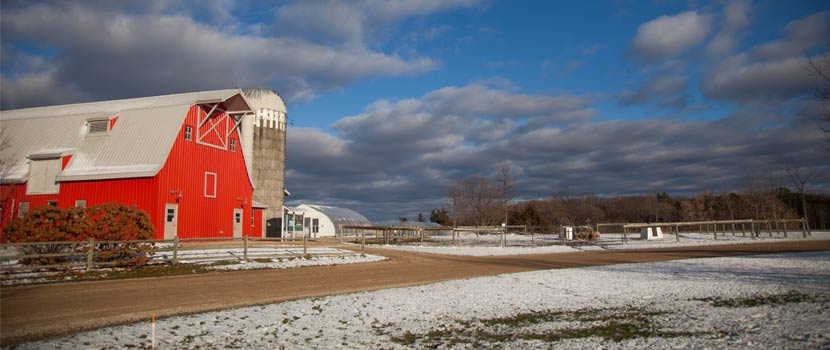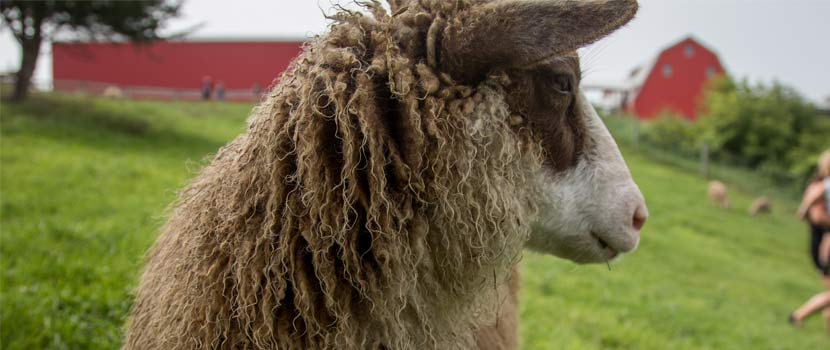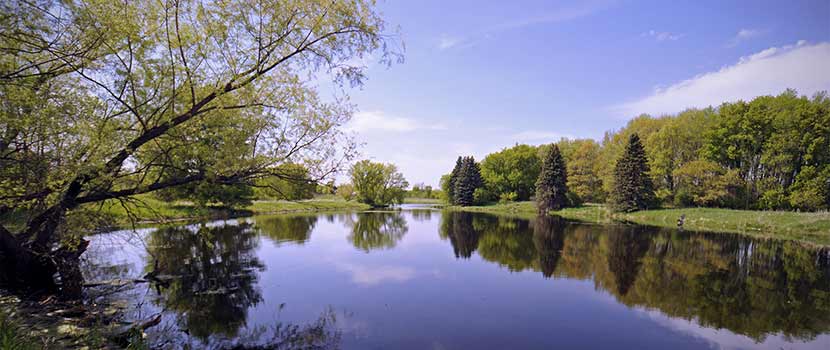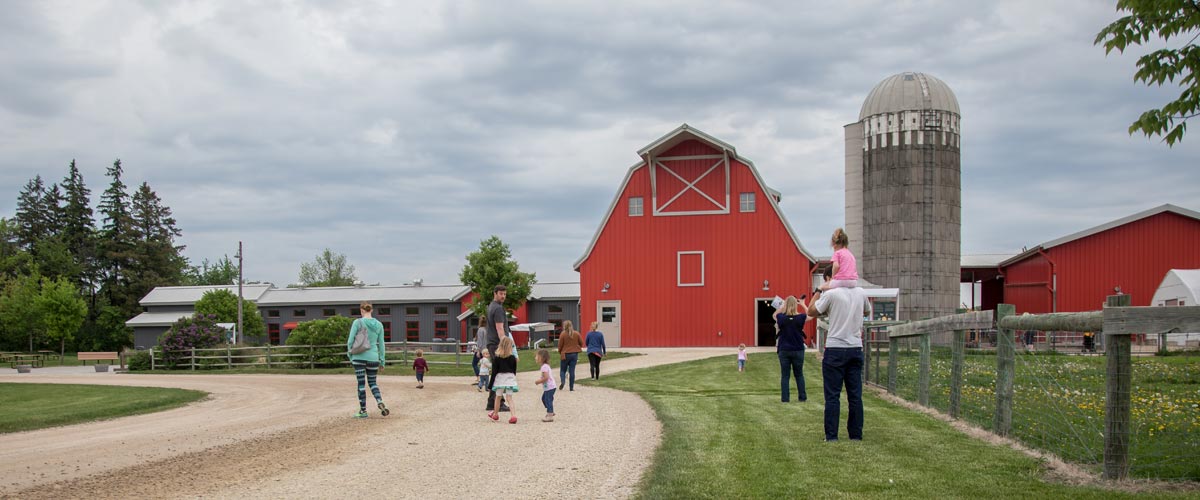
Farming and Environmental Stewardship: The Story of Gale Woods Farm
By: Tim Reese
November 11, 2019
Category: Farm Connections
Gale Woods Farm is a unique and special part of Three Rivers Park District. It was donated by the Gale family with the stated intent that the land remain undeveloped, that it continue to be used for farming, and that it be used to teach people about agriculture.
It opened in 2003 as a working educational farm.
While it was an easy decision for Three Rivers to accept the donation and preserve the beautiful natural qualities of the land, maintaining farm land was a paradigm shift for Three Rivers.
The Public Reconnects to Farming
Since 1954, Three Rivers had focused on acquiring property, much of it farmland, and converting it back to native forest or prairie. It was part of the mission of promoting environmental stewardship.
However, in the 1990s, society was beginning to reconsider the connections between farming and environmental stewardship, and interest in local foods was increasing rapidly. People were hungry (pun intended) to reconnect to farming.
Since 1990, community supported agriculture (CSA) operations in the Twin Cities has grown from three farms to over 65. People are realizing that how we treat farmland has a huge impact on the environment.
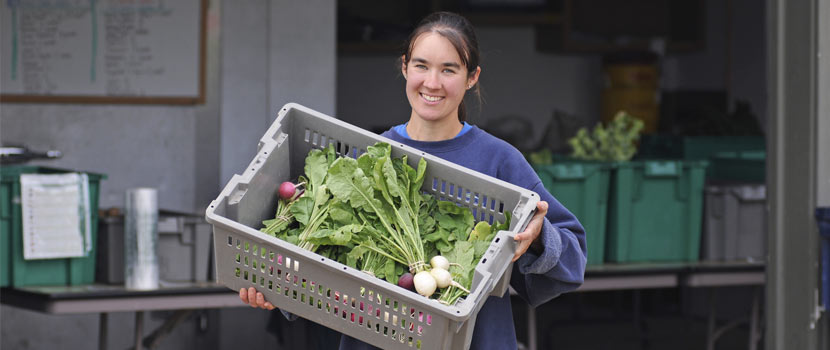
Farmers and Consumers As Environmental Stewards
Farmers really are stewards of the land. It is their livelihood. Nearly every decision farmers make -- from which crops to plant, to how they raise animals and manage waste, to pest management -- affects the environment.
Since half the land in Minnesota is farmland, these decisions have a significant impact on the environment. These decisions also affect the bottom line, and sometimes what is best for the environment is more expensive or results in lower yields. The difference between profit and loss is very slim in farming.
As consumers, we are part of these decisions. If our choices in the grocery store are based solely on price, it often translates to farm practices that don’t account for the costs associated with environmental stewardship.
In order to understand how our food decisions impact the environment, we need to know a few things about farming and how food is grown and raised. To truly understand how food is grown, it’s important for people to experience it.
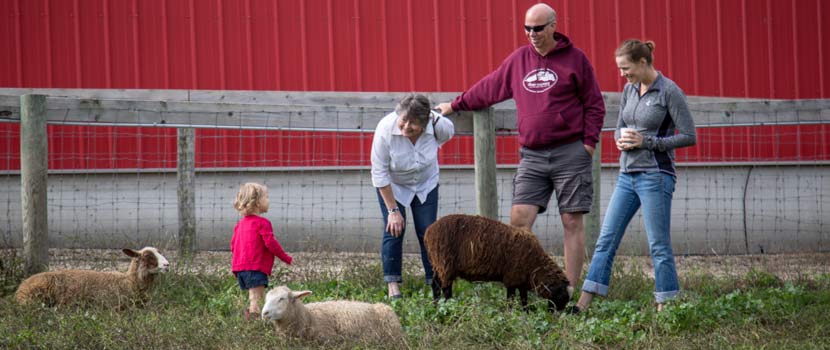
Fewer Connections to Farming
Retired Three Rivers Associate Superintendent Tom McDowell, who worked with the Gale family on the donation, calls Gale Woods Farm “everybody’s grandparents’ farm.”
Most of us over the age of 50 grew up with a farm somewhere in our family that we could visit. We had a connection to people who worked the land and produced food for a living -- people who experienced the challenges of drought or weeds or low commodity prices.
Farming was (and is) a hard way to make living, and many people who had an opportunity to leave the farm took it. Three generations ago, nearly half the U.S. population lived on a farm; now it is less than 2 percent.
Growing Interest in Food Production
I grew up in the suburbs during this cultural shift away from farming. I learned to love the outdoors through canoeing Minnesota rivers, trips to the Boundary Waters Canoe Area and weeks spent at summer camp. But my experience with agriculture was limited to short visits with my grandfather to the family farm.
In college, I became passionate about protecting the special natural places I’d learned to love and found that much of the water pollution in our state came from farmland. I discovered that environmentalists were pointing fingers at farmers who were trying to make a living in the difficult farm economy of the 1980s.
I found farmers that were part of an organization working to protect the Cannon River in southern Minnesota and searching for ways to make a living farming while reducing water pollution. I realized that these farmers wanted to be stewards of the land but could only do so if they were supported by consumers.
I started working at one of the few organic CSA farms in Minnesota. I connected with city dwellers who wanted to know how their food was being grown and were willing to support sustainable agriculture with their purchases. I realized just how important it is for consumers and farmers to work together. And I became fortunate enough to help make these connections at Gale Woods.
Building Connections and the Next Generation of Stewards
We’ve been intentional about making Gale Woods Farm a place where consumers can see how their food is raised, experience the effort involved, and purchase food grown with stewardship in mind. This is why all of the products we raise are sold in the farm store.
We want people to be able to purchase a dozen eggs and then walk outside and see the chickens, or purchase a head of broccoli and meet the gardeners who planted and harvested it. Or better yet, help plant and harvest (and more importantly weed!) those crops and take care of the chickens.
Hopefully, we can even inspire young people to find a passion in growing food. We are thrilled that a few of our youth farmers and seasonal employees have gone on to work in agriculture.
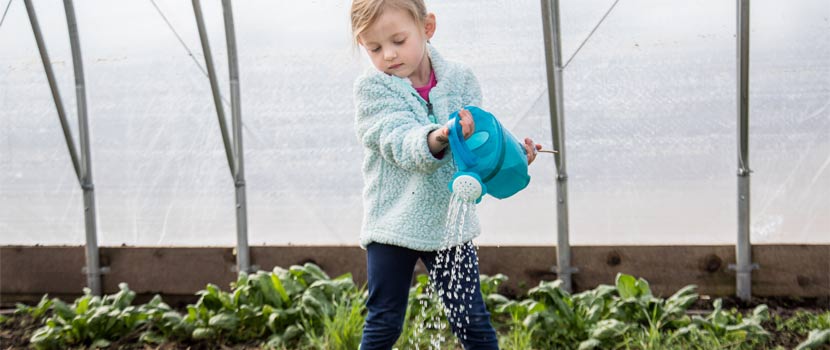
By helping consumers understand why it is important to support farmers and by providing the next generation opportunities to experience the joys and challenges of working with soil, plants and animals, we are fulfilling Three Rivers’ mission of promoting environmental stewardship. And we’re having fun and producing delicious food while we’re at it! Thanks for being part of the journey with us.
About the Author
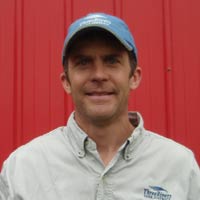
Tim Reese has been the Farm Supervisor at Gale Woods Farm since it opened in 2003. He manages the facility, livestock and gardens at this educational and production farm. While he has been known to don a scarecrow costume and sing a raucous version of Old MacDonald at Halloween events, he believes that food production and farmers have a serious and important role to play in protecting our environment and promoting land stewardship. When not busy at Gale Woods, Tim enjoys cross-country skiing, biking and exploring the natural world with his family.
Related Blog Posts
Winter Animals at Gale Woods Farm
By: Jane Carlson
Winter is here, and while most of the critters are well-suited for the cold, some didn’t make it past Thanksgiving. Learn how the farm animals fare in colder months.
Sheep and Fiber at Gale Woods
By: Tim Reese
Wool is a versatile fiber that has been woven into human history for thousands of years. Learn more about the breed of sheep at Gale Woods Farm and dive into the process of making fleece into yarn.
What Is Environmental Stewardship to You?
By: Laura Jarriel Andrea Breitung
Learn what the Three Rivers blog is about and start to ask yourself what environmental stewardship means to you.
